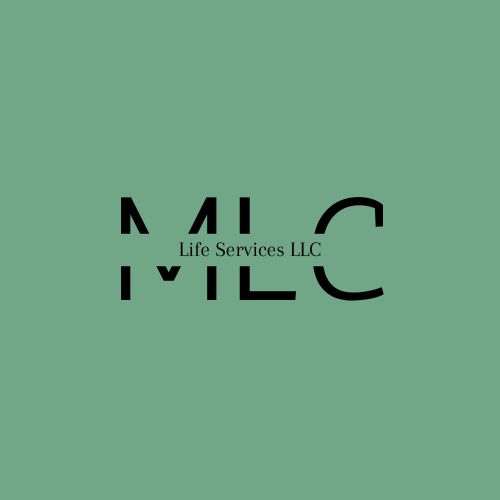
Making Sense of Health Sharing: A Smarter Way to Manage Medical Costs?
When it comes to healthcare coverage, many people assume that traditional insurance is their only option. However, alternative solutions like health sharing plans have been gaining popularity due to their cost-effectiveness and flexibility. Impact Health Sharing is one such program that offers a potential way to save thousands of dollars annually on medical expenses.
But is health sharing the right choice for everyone? This article explores how health sharing plans work, their benefits, potential drawbacks, and who can benefit the most.
What is Health Sharing?
Health sharing plans, also known as medical cost-sharing programs, are membership-based communities where participants contribute a set amount each month to collectively cover healthcare expenses. Unlike traditional insurance, these programs are not regulated under the Affordable Care Act (ACA) and do not guarantee coverage for all medical expenses (PeopleKeep).
Impact Health Sharing is one such program that provides an alternative to traditional insurance, often at a lower cost (Impact Health Sharing).
Advantages of Health Sharing Plans
Health sharing plans have become a popular alternative due to their affordability and flexibility. Here are some key benefits:
1. Lower Monthly Costs
Health sharing contributions are typically lower than traditional insurance premiums, making healthcare more affordable for individuals and families (Money Smart Guides).
2. Flexibility in Provider Choice
Most health sharing plans allow members to visit any doctor or specialist without network restrictions, offering greater freedom in choosing healthcare providers (Impact Health Sharing).
3. Simplified Cost Structure
Many health sharing programs follow a straightforward model without complex deductibles or copays (Impact Health Sharing).
4. Community-Based Support
Members' contributions directly help cover other members' medical expenses, fostering a sense of shared responsibility (Impact Health Sharing).
5. Encourages Healthy Lifestyles
Some health sharing plans offer incentives or lower costs for members who maintain a healthy lifestyle and meet wellness criteria (Impact Health Sharing).
6. No Open Enrollment Restrictions
Unlike traditional insurance, which has limited enrollment periods, many health sharing programs allow new members to join at any time of the year (Impact Health Sharing).
7. Potential for Significant Savings
Many members report saving thousands of dollars annually compared to traditional insurance plans, particularly if they rarely require medical services (Money Smart Guides).
Limitations of Health Sharing Plans
Despite their benefits, health sharing plans have certain drawbacks that potential members should be aware of:
1. Not Legally Considered Insurance
Health sharing plans are not subject to the same regulations as traditional insurance, meaning they are not legally required to cover specific medical expenses (PeopleKeep).
2. Limited Coverage for Pre-Existing Conditions
Many health sharing programs impose waiting periods for pre-existing conditions or exclude them from coverage entirely (Impact Health Sharing).
3. No Government Protections
Unlike ACA-compliant plans, health sharing programs are not required to cover essential health benefits such as maternity care, mental health services, or prescription drugs (PeopleKeep).
4. Risk of Non-Payment
Because funds are shared among members, there is always a possibility that a medical need may not be fully covered if sufficient funds are not available (PeopleKeep).
5. Exclusions for Certain Medical Conditions or Treatments
Some health sharing organizations may not cover specific procedures, medications, or lifestyle-related health issues (PeopleKeep).
6. Potential Religious or Lifestyle Restrictions
Certain health sharing plans require members to adhere to specific religious beliefs or lifestyle guidelines, which may not be suitable for everyone (PeopleKeep).
Who Can Benefit Most from Health Sharing?
Health sharing plans are not the best fit for everyone, but they can be particularly beneficial for:
1. Self-Employed Individuals & Freelancers
Those without employer-sponsored insurance may find health sharing a more affordable and flexible option (Impact Health Sharing).
2. Healthy Individuals & Families
Since health sharing plans often favor members who maintain good health, those with few medical needs can enjoy significant savings (Money Smart Guides).
3. Small Business Owners
Entrepreneurs looking for cost-effective healthcare options for themselves and their families may find health sharing an attractive alternative (Impact Health Sharing).
4. Early Retirees
Individuals who retire before becoming eligible for Medicare may benefit from the lower costs of health sharing compared to private insurance (Impact Health Sharing).
5. People Seeking Faith-Based or Community-Oriented Solutions
Many health sharing programs operate on shared values and a sense of community support, making them appealing to those who align with this approach (PeopleKeep).
6. Individuals Who Missed Open Enrollment
Since health sharing plans allow enrollment year-round, they provide an option for those who missed traditional insurance deadlines (Impact Health Sharing).
Final Thoughts
Health sharing plans like Impact Health Sharing offer a viable alternative to traditional insurance, especially for those seeking lower costs and greater flexibility. While they provide benefits such as affordability, provider freedom, and a community-driven model, they also come with trade-offs, such as limited coverage guarantees and the absence of regulatory protections.
Before choosing a health sharing program, it’s crucial to review the terms and assess whether it aligns with your healthcare needs. If the advantages outweigh the drawbacks for your situation, a health sharing plan could help you achieve significant savings while maintaining access to quality healthcare.
🔹 Want to learn more? Visit Impact Health Sharing to explore your options.
🔹 Have questions? Reach out to discuss how health sharing can fit into your financial strategy. Call or text (631) 748-9286
🔹 Ready to save on healthcare? Take the next step and see how much you could save with a health sharing plan today!
Your health and financial security matter—let’s find the best solution for you! 🚀
References
Impact Health Sharing - An Affordable Alternative to Health Insurance. Retrieved from impacthealthsharing.com
10 Critical Pros And Cons Of Health Share Plans - Money Smart Guides. Retrieved from moneysmartguides.com
Healthcare Sharing Ministry Pros & Cons - PeopleKeep. Retrieved from peoplekeep.com
